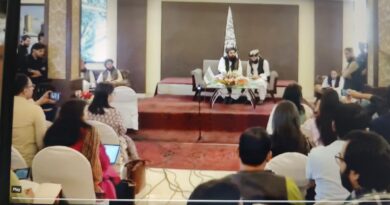Poll Reveals Deep Divisions: American Jews Increasingly Condemn Israel’s Gaza Campaign as War Crimes, With Nearly 4 in 10 Labeling It Genocide
Amid fragile ceasefire hopes, survey shows strong support for the nation persists, but fury at Netanyahu’s government fuels calls for U.S. policy shifts and humanitarian aid
Washington, October 6, 2025 – A new survey underscores a profound rift within the American Jewish community over Israel’s ongoing military operations in Gaza, with a majority viewing the actions as war crimes and 39 percent going further to describe them as genocide, even as affection for the Jewish state endures.
The findings, drawn from a comprehensive national poll conducted by The Washington Post in partnership with leading research firms, capture a community wrestling with its identity amid the 13-month conflict that has displaced over 1.9 million Palestinians and drawn global scrutiny. Respondents overwhelmingly separated their ire toward Prime Minister Benjamin Netanyahu’s far-right coalition from their longstanding bond with Israel itself, highlighting a nuanced stance that blends historical solidarity with moral outrage over civilian casualties and humanitarian restrictions.
According to the data, 67 percent of American Jews believe Israel’s response to the October 7, 2024, Hamas attacks has crossed into war crimes territory, citing indiscriminate bombings, aid blockades, and attacks on hospitals and schools. The genocide figure—39 percent—marks a stark escalation from pre-war surveys, where such characterizations hovered below 20 percent, and aligns with accusations leveled by human rights groups like Amnesty International. Yet, 82 percent still expressed emotional attachment to Israel as a homeland and refuge, with many framing their dissent as a “tough love” imperative to preserve its democratic ethos.
Pollster Sarah Levin, who oversaw the survey of 1,200 Jewish adults aged 18 and older from September 15-28, noted the generational chasm: Among those under 40, 52 percent invoked genocide, compared to just 28 percent of seniors over 65. Orthodox respondents were outliers, with only 12 percent agreeing on war crimes, versus 75 percent among Reform Jews. “This isn’t rejection—it’s reckoning,” Levin said. “They’re saying: We love Israel enough to demand better.”
The poll arrives as fragile truce talks gain tentative momentum, following Hamas’s agreement on October 4 to release 50 hostages and ease terms of a U.S.-brokered deal. Displaced families trudged southward through central Gaza’s rubble-strewn roads, Reuters images capturing the exodus under a sky heavy with uncertainty. Yet optimism remains tempered; 71 percent of respondents urged immediate U.S. pressure for unrestricted aid corridors, and 58 percent supported conditioning military assistance on compliance with international law—a position echoed by progressive Jewish groups like J Street.
Political ramifications loom large ahead of the November elections. The survey found 62 percent approval for President Joe Biden’s balanced approach—backing Israel’s defense while pushing for ceasefires—contrasting with 41 percent for Vice President Kamala Harris’s more vocal advocacy on Palestinian rights. Former President Donald Trump’s unconditional support drew just 29 percent favorability, with critics decrying it as enabling “reckless escalation.” One anonymous respondent, a 45-year-old teacher from New York, captured the sentiment: “Netanyahu’s war isn’t our Judaism—it’s his politics. America’s voice can stop the bleeding.”
Experts caution that these views, while influential in Democratic circles where Jews comprise 7 percent of voters, may not sway broader electorates. “The community is a bellwether for ethical debates on U.S. foreign policy,” said Dov Waxman, a UCLA Jewish studies professor. “But translating poll pain into policy change requires bridging the pro-Israel lobby’s sway.” As Gaza’s death toll surpasses 42,000 per health ministry figures, the survey signals a pivotal moment: American Jews, once largely unified in Zionism, are redefining allegiance through the lens of accountability.




